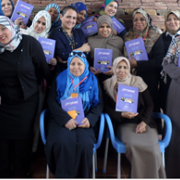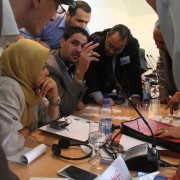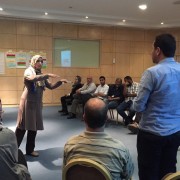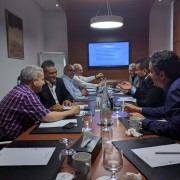
To establish effective practices for sub national governance. IRI is helping ensure that local government is informed by, and inclusive of, citizen concerns. In addition, IRI supports Libyan municipal council members in fulfilling their roles and responsibilities while engaging in sound policy making. IRI is supporting the Ministry of Local Government to establish effective structures for intra-governmental communication, administrative functions, training, and service delivery. Finally, in an effort to increase the role of marginalized groups in Libya’s governance, IRI engages youth leaders to advocate for issues in their communities.

Provide support to Libyans as they make important decisions about the structure, authority, power, and resources of their national and local governments and the treatment of and protections for their citizens. A key component of this project is to engage citizens, including marginalized groups, in the national dialogue to compile community perspectives and to build consensus on important issues that will influence the constitutional reform process, and lay the groundwork for a more engaged citizenry.

To strengthen citizen confidence in Libya’s elected government during a key political transition in the country. A primary component of this project is to increase public and stakeholder confidence in the integrity of elections as a vehicle for peacefully and democratically selecting leaders. Additionally, this program seeks to increase women’s and marginalized groups’ genuine inclusion and participation such that their views and interests are incorporated into Libyan governing and legislative processes.

The Asia/Middle East Economic Growth Best Practices (AMEG), Libya Public Financial Management Activity implements economic growth activities for USAID missions and operating units in Asia and the Middle East. The goal of the AMEG Libya Public Financial Management (PFM) project is to develop modern PFM systems in Libya. This involves improved policies and processes, and institutional and human capacity-building at both the national and municipal levels. Modern PFM policies and processes will improve governance and the delivery of basic services to Libyans.
The Libya Women Economic Empowerment activity seeks to release the unrecognized economic potential of women’s entrepreneurship and thereby contribute to Libya’s economic growth and political stability.








Comment
Make a general inquiry or suggest an improvement.